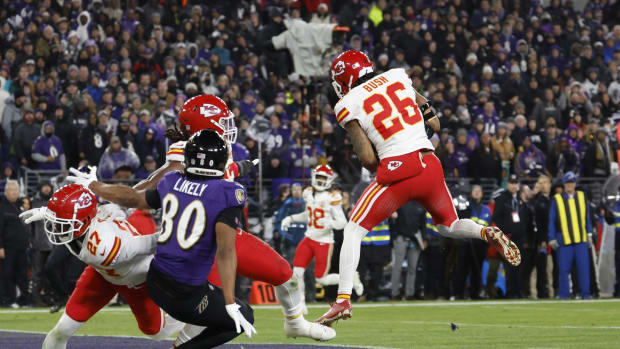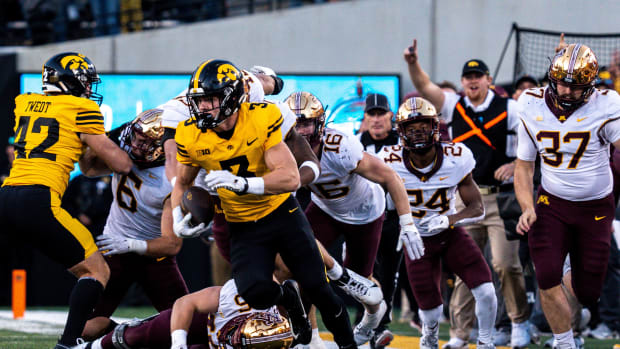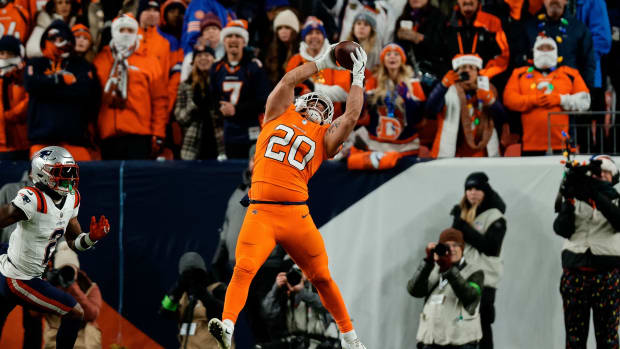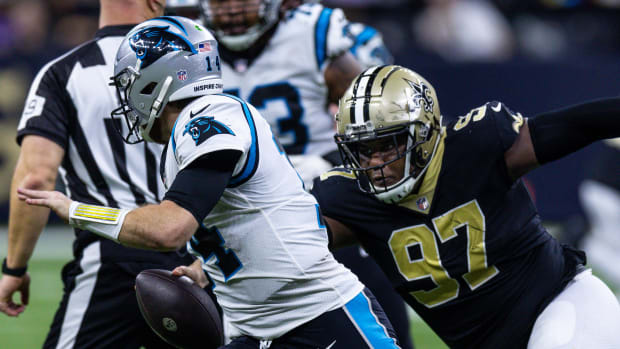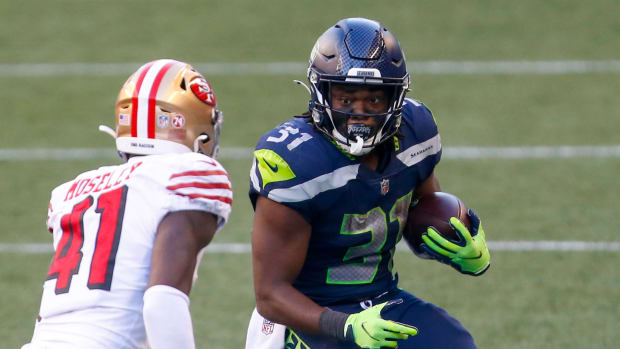Legal analysis of Darren Sharper negotiating a 'global plea deal'
In an extraordinary legal development, former NFL star safety Darren Sharper has negotiated a so-called “global plea deal” with prosecutors in four different states—Arizona, Nevada, California and Louisiana—to resolve nine charges related to sexual assault accusations brought against him by at least nine women. While the terms of the plea deal remain unknown, it is expected that Sharper’s sentencing will run concurrently rather than consecutively. This is a crucial distinction because in this situation, the 39-year-old Sharper would serve his all of his sentences at the same time, meaning he would get out of prison far earlier than if the sentences were run one-after-the-next.
Darren Sharper accepts sexual assault plea deal, will serve jail time
Thus far, only one judge—Maricopa County (Ariz.) Superior Court Judge Warren Granville—has sentenced Sharper. On Monday, Judge Granville sentenced Sharper to nine years in prison. Later on Monday Sharper pleaded no contest to charges in California and will be sentenced on July 15.
If Sharper, who faces up to life in prison in Louisiana and decades of prison for other charges, receives similar sentences from judges in the three other states, he could potentially be out of prison earlier than nine years. This would depend on the structure of the plea deal, his good behavior behind bars and how each state credits Sharper’s time served while in a Los Angeles jail. A complicating factor is the distinction between federal and state charges and related truth-in-sentencing policies. Among the charges Sharper faces are federal drug charges in Louisiana. Sentencing for a federal offense would subject Sharper to federal truth-in-sentencing policies that generally require defendants serve at least 85 percent of their sentences. Sharper would not be subject to federal truth-in-sentencing for the rape charges under state law, although he would be subject to applicable state truth-in-sentencing policies.
To be clear, information about Sharper’s plea deal is developing and remains a source of speculation. Andy Grimm of the New Orleans Times-Picayunereports from a confidential source that Sharper will likely receive a 20-year sentence to resolve his charges in that state. The plea deal would obviously become much less favorable to Sharper if ultimately he’s sentenced to decades in prison rather than a decade.
• KING: Roger Goodell opens up about the NFL's tough year
Global plea deals are rare, especially involving four states
Although approximately 90% of criminal prosecutions in the United States result in plea deals, most of those deals decidedly favor prosecutors. Criminal defense attorneys recognize that prosecutors usually win trials and this provides prosecutors with considerable leverage in plea deal negotiations. Most criminal defendants also lack the financial wherewithal to litigate for an indefinite period of time, which is in sharp contrast to prosecutors who are funded by taxpayers. For their part, prosecutors are often unwilling to accept a plea deal that favors defendants because it could result in an injustice to victims and potentially lead to backlash in the public and media. This concern is most acute for the district attorney himself or herself, as that person is an elected official.
Chris Borland's retirement brings price of NFL longevity into focus
For these reasons, it is especially difficult for criminal defense attorneys to negotiate favorable plea deals for a client with prosecutors in two different states. Each set of prosecutors would have clear incentives to avoid a deal favoring the defendant.
With that in mind, consider what attorneys for Sharper have pulled off: they have negotiated a plea deal with prosecutors in four different states and early reports suggest the deal is very favorable to Sharper. If in fact Sharper serves less than a decade in prison as part of the plea deal, it would be one that elicits serious criticism from victims’ rights groups and many other constituencies. Keep in mind, the average sentence for rape in the United States is 136 months (11 years and four months). Sharper might thus receive a shorter sentence for committing multiple rapes than do many defendants who are sentenced for committing one rape. It is worth stressing that Sharper is accused of being a serial rapist who slipped sleeping pills in drinks of women with whom he met at bars. In 2014, SI’s Michael Rosenberg and Thayer Evans detailed the many horrific allegations against Sharper.
Caveats and not rushing to judgment to attack the plea deal
As noted above, however, Sharper has not yet been sentenced in three states. This is an important qualification in any analysis of the kind of prison sentence he faces. What seems like a nine-year sentence right now may climb considerably when all is said and done.
Another important caveat is that while Sharper faces numerous allegations, it is unclear how admissible and compelling the evidence against him would be in a trial. Often, pieces of evidence reported by media in high-profile cases are later found inadmissible by a judge.
Similarly, prosecutors have to gauge the quality and believability of witnesses. If some of the evidence against Sharper would be inadmissible or if some of the accusers may not testify effectively against him, prosecutors would have greater incentives to strike a plea deal with him rather than run the risk of him being found not guilty across the board.
Ultimately four judges will decide Sharper’s fate
A plea deal does not become binding until a judge approves it. Judges have been known to reject plea deals that they find to inadequately punish a defendant who has admitted wrongdoing. For a sports example, recall U.S. District Judge Henry Hudson sentencing Michael Vick to 23 months in prison even though Vick had negotiated a 12-to-18 month plea deal with prosecutors over interstate dog fighting charges. This was a painful reminder to Vick and other defendants that judges usually have sentencing discretion to impose a lengthier sentence.
Michael Sam, others look to get back into NFL at inaugural veteran combine
Sharper’s “global plea deal” requires independent approval from judges in four states. While Judge Granville has spoken on behalf Arizona, it is possible that one of the judges in the other three states might reject Sharper’s sentencing running concurrently. Alternatively, the judge might demand that Sharper—like Vick—receive a lengthier sentence than as stipulated in a plea deal.
The judges, in consultation with sentencing commissions, will also need to agree on where Sharper serves out his sentence. Each state may want Sharper to serve time there to reflect the harm he caused those states.
Impact of global settlement on other potential victims
It is possible that other women will bring accusations against Sharper. A plea deal would not bar criminal charges for those claims. Sharper could face additional prosecutions, provided charges are brought against him within the applicable statutes of limitation.
Victims and alleged victims of Sharper can also bring civil lawsuits for battery and intentional infliction of emotional distress against him. A plea deal with prosecutors does not foreclose those lawsuits.
Michael McCann is a Massachusetts attorney and the founding director of the Sports and Entertainment Law Institute at the University of New Hampshire School of Law. He is also the distinguished visiting Hall of Fame Professor of Law at Mississippi College School of Law.
































